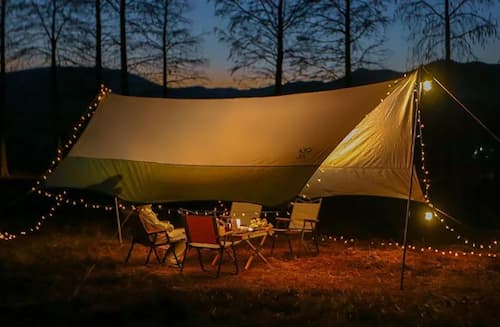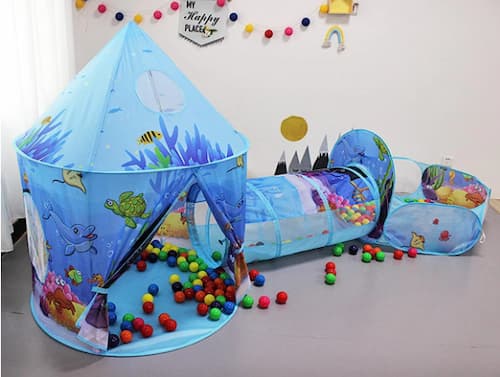Having a dependable and appropriate tent is vital for a pleasant and satisfying outdoor adventure. Whether you're planning a camping trip, a hiking expedition, or attending a music festival, your tent serves as your sanctuary, providing shelter and safeguarding you from the elements.
In this all-inclusive post, we will examine the fundamental aspects to contemplate when selecting the ideal outdoor tent. By doing so, you can ensure that you make a well-informed choice and discover the perfect shelter for your outdoor escapades.

The Elements to Keep in Mind When Selecting an Outdoor Tent
Selecting the right outdoor tent involves considering various factors that determine its suitability for your specific needs and preferences. Let's delve into the key aspects to consider when making this important decision.
1. Tent Size
One of the first considerations is the size of the tent. Determine the number of people who will be using the tent and whether you need additional space for gear storage. Tent capacity is typically indicated by the number of people it can accommodate, such as 2-person, 4-person, or family-sized tents. Keep in mind that larger tents may provide more comfort and room to move around, but they can be heavier and bulkier to transport.
2. Tent Design and Style
Tents come in various designs and styles, each suited for different purposes and environments. Dome tents offer excellent stability and wind resistance, making them ideal for camping in exposed areas. Tunnel tents provide ample headroom and are great for extended stays. Cabin tents offer vertical walls and spacious interiors, making them suitable for family camping trips. Consider the tent design that best fits your needs in terms of comfort, ease of setup, and adaptability to different conditions.
3. Seasonality and Weather Resistance
Different tents are designed to withstand different weather conditions. Consider the seasons and climates you will be camping in to choose an appropriate tent. Three-season tents are the most common and suitable for spring, summer, and fall camping, offering good ventilation and protection against mild weather conditions. If you plan on camping in colder or more extreme conditions, consider a four-season tent designed to withstand heavy snow, strong winds, and harsh climates.
4. Tent Weight and Portability
If you're planning backpacking or hiking trips, the weight and portability of the tent become crucial factors. Lightweight tents are designed to minimize weight without compromising on durability and weather resistance. Look for tents made from lightweight materials, such as nylon or polyester, and consider the compactness of the tent when packed. Keep in mind that ultralight tents may sacrifice some comfort and space.
5. Tent Setup and Ease of Use
Consider the ease of setup and the complexity of the tent's construction. Freestanding tents are generally easier to set up, as they can stand on their own without the need for stakes or guy lines. Look for color-coded poles and intuitive assembly instructions to simplify the setup process. Additionally, consider features like easy-access doors, ample ventilation options, and interior storage pockets for convenience during your camping experience.

6. Durability and Quality
Investing in a durable tent is essential for longevity and performance. Look for tents made from high-quality materials and with strong construction, such as reinforced stitching and robust zippers. Consider the denier (D) rating of the tent fabric, where higher denier indicates increased durability. Additionally, look for tents with waterproof or water-resistant properties to keep you dry during rainy conditions.
7. Price Range
Consider your budget when choosing an outdoor tent. Prices can vary greatly depending on the tent's brand, size, features, and materials. Set a realistic price range and prioritize essential features that meet your needs while fitting within your budget. Remember, investing in a quality tent that suits your requirements will provide better value in the long run.
Conclusion
Choosing the appropriate outdoor tent is vital for an enjoyable and comfortable outdoor experience. Carefully examining aspects such as tent size, style, durability, weight, seasonality, price, and ease of assembly, you can make a well-informed decision to find the ideal shelter for your outdoor activities. It's important to evaluate your specific requirements and preferences to ensure that your chosen tent provides the right balance of comfort, protection, and mobility. With the right tent, you'll be able to embark on your outdoor expeditions with confidence, knowing that you have a trustworthy home in the wilderness.
